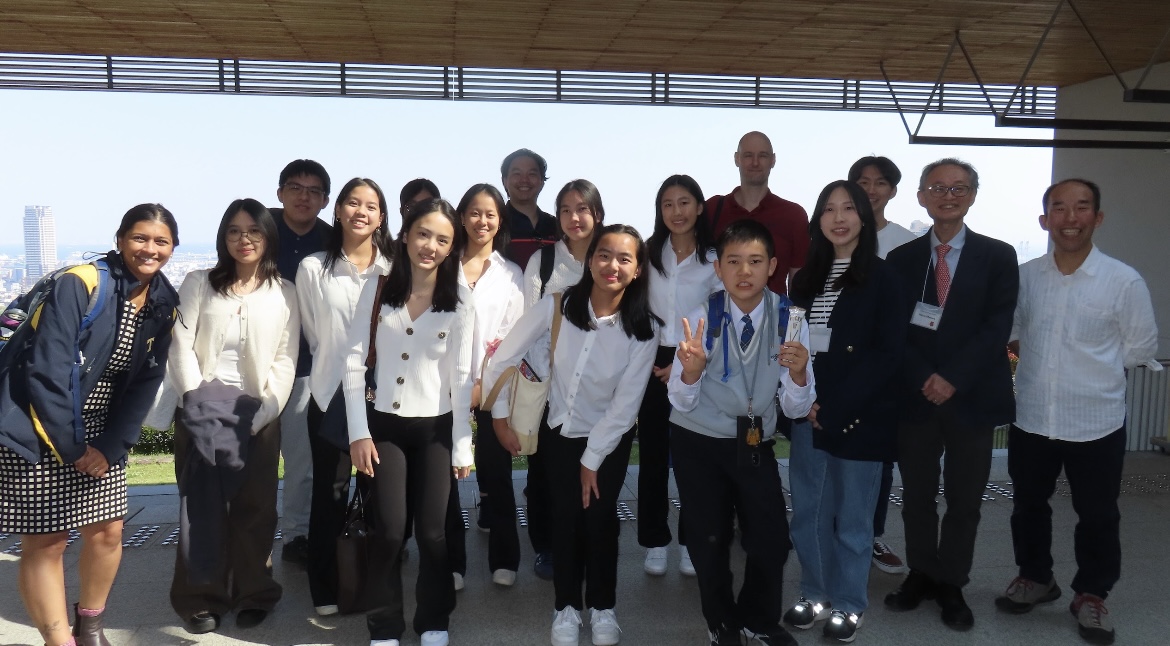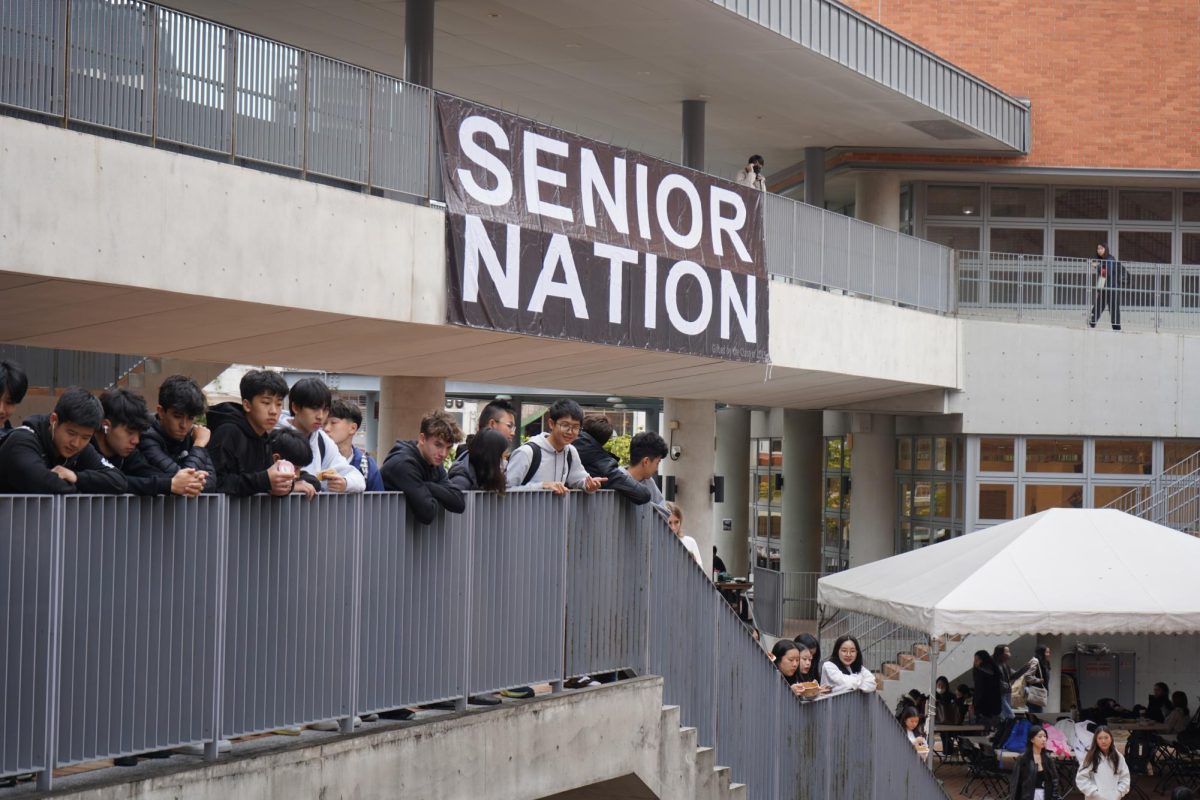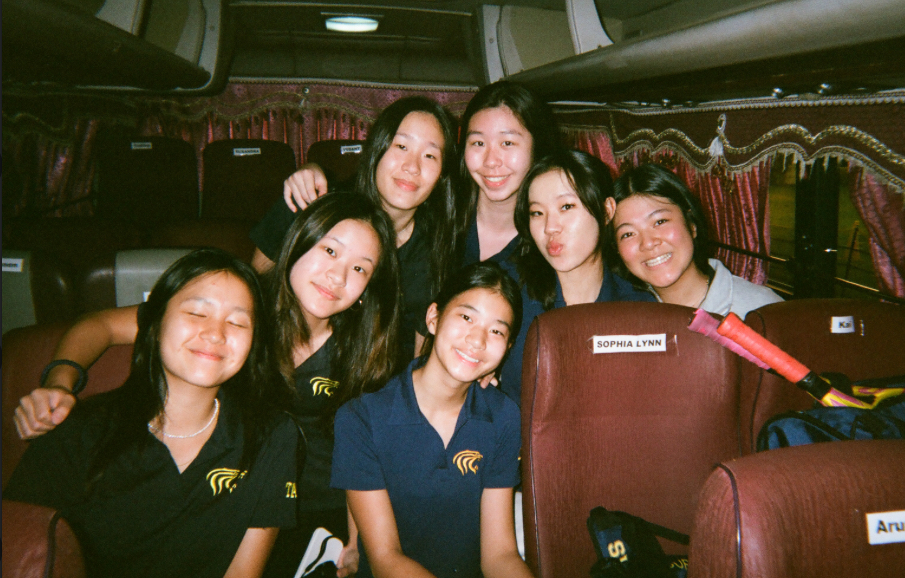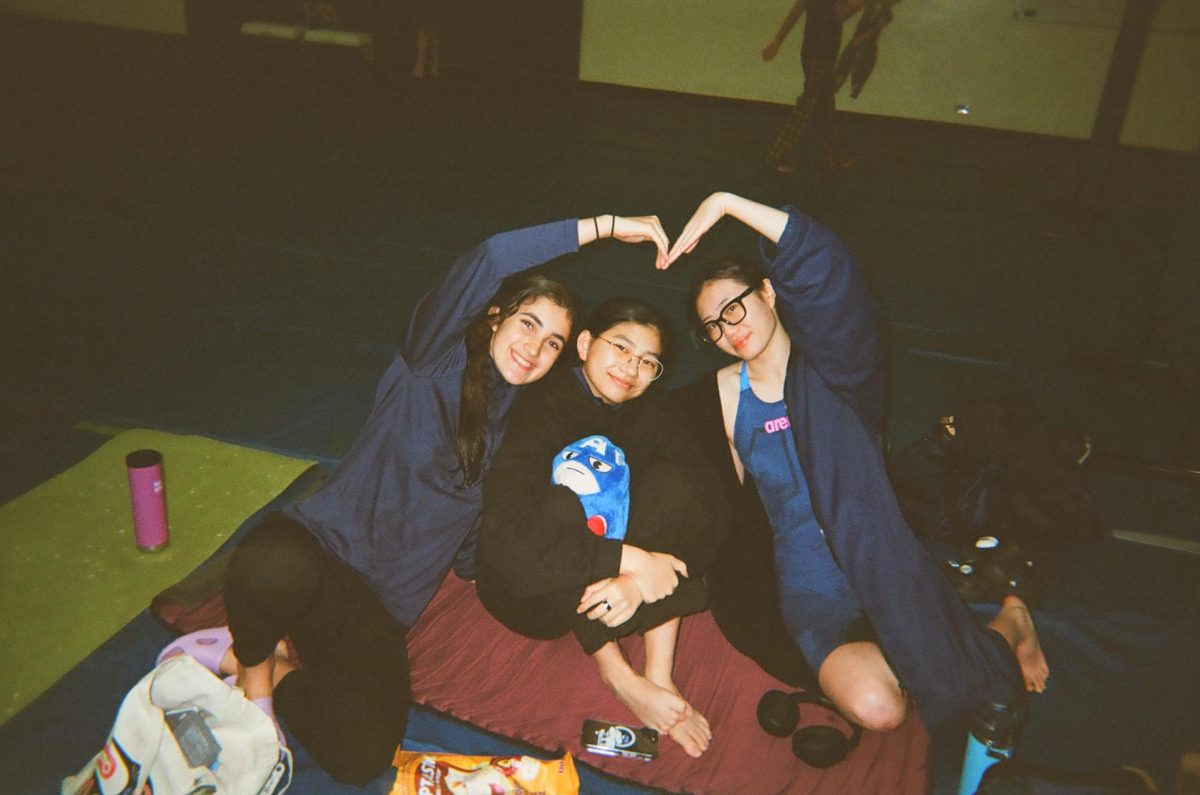As mentioned in the article here:
Q&A
Tell me about your decision to take on college a year earlier than most (in other words, what prompted this decision?).
The summer after my sophomore year, I went to a summer program run by Carnegie Mellon that allows high schoolers to take two college classes in six weeks and experience academics and life at a collegiate level. Throughout that experience, I was continually amazed by the educational and research capability that a college could offer. Obviously, I had to keep in mind that this was Carnegie Mellon that I was talking about, but as I did more research into other institutions, I found that the level of educational and research rigor that they could inspire and nurture was so appealing that I did not want to wait another year.
The thoughts only became a reality after I spoke to Mr. Lowman a week before school started and he encouraged me to go ahead if I believed it was the right decision for me. His continual support was of great importance to my success in the process. To be honest, I didn’t embrace the prospect of leaving high school a year early at all. I had just been elected into StuGov and I began to do more substantial work in the ROV team, so I had a lot of friends, projects, and opportunities at TAS that I didn’t want to give up. Until I submitted my enrollment contract with Carnegie Mellon, I had kept in the back of my mind that I could always decide not to go. This is part of the reason why I had not made my endeavor public sooner. Of course, Carnegie Mellon was an unmissable opportunity of a lifetime! I’ll get into the details of why that is so later.
Why do you think this was the right decision for you?
It’s a little early for me to actually say that this is the right decision, but my main decision points in applying came from “do I know that I am interested in computer science so much that I will give up a year of ‘general education’ in high school?”, “will I actually survive in college?!”, and “am I ready to leave the TAS community behind?” The last question turned out to be the hardest one to answer, and even now, there are times that I do miss the people and environment that TAS had. At the same time, I know that this adjustment would have to happen regardless of when I left for college, so I’m trying to keep that in mind as I make the transition.
Walk me through your college application process/experience.
My college process was hardly any different from the process that the current seniors are going through. In fact, in the actual applications, the only difference was having to check some checkboxes or explain why I was applying without a high school diploma or equivalent. The questions that I had to answer were exactly the same as everyone else. The only difference in my application experience is that I hadn’t thought much about the process until the first week of school, so I didn’t have a lot of college research background. Mr. Lowman was fantastic in helping me to get caught up and also understand the college process well even though I didn’t attend college counseling sessions (a part of not being sure I was leaving yet and thus not making it public).
Throughout this entire experience, my parents and my brother have always been supportive. From the conception of this idea, their unwavering support has been the essential element that has kept me going even when I doubted myself and that still keeps me going now. Without the spiritual strength that God has given me, I would most definitely not have been able to go ahead with this process either. In fact, the pieces of the puzzle that allowed me to go ahead with this would not have come together without Him. After all, He’s the only one who knew about this from the beginning.
How did you decide on CMU?
I’m going to answer this question in two parts. I’ll start with why the School of Computer Science was so appealing. For those of you not into CS, read the next paragraph, it talks about why CMU itself is so appealing.
Quoting Mr. Lowman, Carnegie Mellon is the computer scientists’ playground. The longer I’m here, the more I see the truth in that statement. There’s tons of resources here to help you build whatever you want to, and the combined knowledge that we have here is awe-inspiring. My parents have always told me that a ship can’t rise unless the sea level does too (no, it’s not that they predicted climate change). Basically, when I’m in a community where I’m continually being challenged to become better by the community around me, I’m in the right place. Considering only the intellect, I’m most definitely in the right place. My peers have played with all sorts of things that I’ve never heard of, and I can’t wait to learn more from them over the next four years. Of course, something else that CMU SCS doesn’t lack that is necessary for every great CS school is an adequate dose of nerdy humor: CMU hung up a banner in the University Center celebrating the fact that the smiley was first “emoted” here and my CS professor called the specification of mergesort in Wikipedia O(Wrong) and then proved it. I should probably stop here; you get the point.
I appreciate the Carnegie Mellon community outside of the School of Computer Science just as much. The people here are truly passionate about their work, and I see people embody the motto of CMU every single day (“My heart is in the work.” – a quote from the letter that Andrew Carnegie wrote when he underwrote the finances necessary to create CMU). Perhaps even more inspiring is the fact that this community pushes me to not only become more intellectually advanced, but also more emotionally and morally advanced. There are so many people here that genuinely care so much about the community, and if any of you do come here next year, you’ll feel that right from the start of Orientation Week. The way that people here embrace the importance of each other’s disciplines and the humanity of each other is not like anywhere else I’ve seen before. Diversity is also real here. There’s an international population, but that’s not exactly unique. What is special about CMU is that this place churns out innovators, actors, musicians, and people who excel in all disciplines. I know that this sounds pretty extreme and perhaps too good to be true, so if you need some evidence to believe this, come to a sleeping bag weekend for prospective students and email me at edtong AT cmu DOT edu.
Tell me about your first day of school at CMU.
The first day already seems like ages ago. Of course, it was a pretty nerve-wracking day as I sat through 3D Calculus, Economics, the freshman English class, and Matrices and Linear Transformations. I realized pretty quickly that this was going to be nothing like high school. The homework was going to have staggered due dates, and priorities would have to change as time passed. In fact, on the first day, my English teacher told us that she knew we weren’t necessarily going to finish all the assignments, so the point breakdown was given to us so that we would know how we could get the grade we wanted while still prioritizing (which might sometimes mean not doing an assignment). Of course, I had, and still have no plans to do that, but that rhetoric was a reminder that the routine that I was used to would change dramatically.
Socially, the day was also overwhelming. I saw tons of people compared to the amount I had seen during orientation, and I wasn’t sure how to get to know so many people. The professors who I met were also so high up in the field that I couldn’t even imagine getting taught by them, much less actually talking to them or answering one of their question. This was doubly confusing as there were people like my freshman advisor and assistant dean who would actually use their first names, and in my mind, these people demanded so much respect that I would never imagine being on a first name basis with them. I haven’t overcome all these barriers and my fear of doing something awkward, impolite, or disrespectful, but I think that this is something everyone feels when starting college. The best piece of advice I got regarding this may not sound comforting, but it’s realistic: “You’re a freshman, everyone expects you to make mistakes.”
Describe your average day at CMU.
There are no average days at CMU. Every day is unique because of the research I see that’s being done (did you know that CMU is thinking about building Baymax?! http://www.build-baymax.org), the stuff that I’m learning, and the stuff that I’m being challenged with (one of my homework problems was solving P vs. NP–it was for extra credit, a million dollars, and a PhD). There’s also those bad days when you get a tough midterm, when you feel like anything you try to solve a problem isn’t going to work, or when you feel like you said or did something that you shouldn’t have. It’s in those times that I remind myself that I’m inadequate, and that’s why I came here, to learn to be a little less inadequate.
Basically, every day is filled with surprises both good and bad, and because your school is your home, I’ve found that it’s so important to sometimes seek refuge in yourself. It’s easy to get caught up in the mistakes that you make and it’s also easy to make yourself so busy that you don’t think about anything else other than your studies and intellectual stuff. That’s something else that’s different about college: there’s always an event going on here. There’s tech talks, there’s career fairs, and there’s student organization events almost all the time, which makes it that much harder to find quiet time to reflect and settle down.
You seem to have put a lot of thought into your future with such a step. What are your plans even further into the future (grad school? any changes in major?)
My plans for the future are changing every single day. There’s a bunch of stuff that I’m interested in doing, but I really haven’t gotten enough exposure to the different fields of computer science that I know what path I want to take yet. In fact, every day, I see something else that I find cool and then remember that I can’t do everything that I’m interested in. As of now, I do plan on ending up with at least a BS (Bachelor of Science) in CS, so no major changes (as far as I can tell!). I have been told though, by a wise person, that they have no doubt that I’m going to go for grad school. We’ll see about that.
Describe the extracurriculars you are partaking in to me, if any!
I’m not sure what the exact extracurriculars I’ll be engaging in are, but I’ve been to a talk hosted by the Association for Computing Machinery chapter here, and I plan to engage in Scotty Labs or some other club that allows me to build some interesting CS stuff as well. I’ve also joined Cru, a Christian organization that has many chapters across the United States and internationally. I think that regardless of what faith you are of, it’s important to join a spiritual support group to have a “home base” that you can return to in times of stress. I’ve also applied to join the Carnegie Mellon Emergency Medical Service team, so if I’m accepted, I look forward to being able to serve the campus in that way.
Advice for seniors applying to college?
During the application process, take advantage of the chance to understand yourself better. It’s always good to get other people’s opinions on your essays, but ultimately, remember that the application is just as much for you as it is for the colleges’ admissions teams. Also, I truly think that the college admissions process works. I’ve looked more into a college after I applied to it, and I actually realized that I didn’t like its environment so much before they sent me their decision. They rejected me, and I think it’s because they could tell that I wouldn’t have fit into their community.
Oh yeah, and even though people will tell you not to procrastinate, also don’t allocate an hour and be like “I’m totally going to finish my Common App essay in this amount of time!” It won’t happen. The ideas for your essays have to come about pretty organically. If you have a mental list of the questions you have to answer, the ideas will start popping into your head on the bus, right before you fall asleep, or while you’re walking to class. From my experience, those ideas were the best ones.
Finally, it is true that it’s best if you only apply to colleges that you think you’ll like. The application process is stressful, so the fewer you can do, the better. Seriously though, I’ve found that the rankings are flawed. They may give you an “objective” rating of a school, but they don’t change based on your parameters. For every college that you apply to, figure out what you really like about it, not what they tell you you’ll like about them on their homepage. That way, if you do choose to go to that university, you’ll really take full advantage of the experience.
I also remember that experience still, and I’m happy to help in any way I can (especially if you decide to come visit CMU!).
Junior Turned Freshman: Edmund Tong's Full Q&A
October 7, 2015
1
0




![[PHOTO COURTESY OF PIXABAY]](https://blueandgoldonline.org/wp-content/uploads/2025/03/white-18227_1280-1200x803.jpg)

![[PHOTO COURTESY OF PIXABAY]](https://blueandgoldonline.org/wp-content/uploads/2025/03/fire-6706674_1280-1200x800.jpg)
